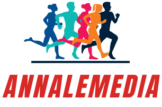In a world where athletes push their limits and strive for greatness, sport nutrition jobs have become the secret sauce behind their success. These roles aren’t just about counting calories or mixing protein shakes; they’re about fueling champions. Imagine being the brain behind a superstar athlete’s diet, ensuring they’ve got the energy to outrun their competition while still enjoying their favorite pizza on cheat day.
Sport Nutrition Jobs
Sport nutrition jobs play a crucial role in enhancing athletes’ performance. Professionals in this field design personalized nutrition plans to meet the specific energy demands of athletes while incorporating their food preferences. A variety of positions exist, including sports dietitians, nutrition coaches, and food scientists.
Sports dietitians often work with teams or organizations to create dietary guidelines. These experts perform assessments to understand an athlete’s individual needs. Research is vital, as it allows these professionals to stay updated on nutrition trends and scientific findings.
Nutrition coaches provide practical advice on eating habits. They work directly with clients, offering real-time guidance to ensure athletes follow their nutrition plans. Engaging athletes in their nutrition journey encourages accountability and commitment.
Food scientists focus on the development and testing of nutritional products. These individuals work with food manufacturers to create supplements that meet athletes’ unique requirements. Collaboration with other professionals, such as sports trainers and medical staff, ensures a well-rounded approach to an athlete’s health.
Several qualifications support entry into these roles. A bachelor’s degree in nutrition or a related field is often necessary. Certifications from reputable organizations add credibility and demonstrate expertise. Continuing education keeps professionals informed about advances in sport nutrition.
Opportunities within the industry continue to expand as interest in sports and health grows. Networking in professional associations provides access to job openings and resources. Those pursuing careers in sport nutrition benefit from a dynamic and rewarding work environment that contributes directly to athletes’ success.
Types Of Sport Nutrition Jobs
Various roles exist within the sport nutrition field, each contributing uniquely to athlete performance and health.
Registered Dietitian Nutritionist (RDN)
RDNs assess athletes’ dietary needs and create personalized meal plans. They focus on the nutritional aspects essential for enhancing performance and recovery. Many RDNs work in clinical settings, offering guidance on sports-related nutrition. In schools and universities, these professionals promote healthy eating habits among student-athletes. State licensure and national registration enhance their credibility, ensuring that athletes receive reliable advice rooted in science.
Sports Nutritionist
Sports nutritionists specialize in providing nutritional guidance tailored to specific sports or activities. They analyze an athlete’s goals, dietary preferences, and physical demands to develop effective strategies. Unlike RDNs, sports nutritionists might not hold a formal clinical license but often possess certifications in sports nutrition. Their expertise helps athletes optimize energy levels, improve performance, and manage weight effectively. Many also conduct workshops and seminars to share knowledge with athletes and teams.
Performance Nutrition Coach
Performance nutrition coaches work closely with athletes, offering hands-on support to implement nutrition plans. They guide daily food choices, focusing on optimal fueling strategies before, during, and after training sessions. Coaches emphasize the importance of timing meals and snacks to match training schedules, enabling athletes to achieve their peak performance. Experience in personal training or coaching, coupled with specialized knowledge in nutrition, equips these professionals to help athletes reach their goals.
Qualifications And Skills Required
Individuals pursuing sport nutrition jobs require a solid foundation in both education and skill sets. These qualifications ensure professionals meet the unique demands of athletes.
Educational Background
A bachelor’s degree in nutrition, dietetics, or a related field is essential for many roles within sport nutrition. Registered Dietitian Nutritionists (RDNs) must also complete an accredited internship and pass a national examination. Some positions favor candidates with advanced degrees, such as a master’s in sports nutrition or exercise science, which enhances knowledge in physiology and metabolism. Specialized certifications, such as the Certified Sports Nutritionist (CISSN), add further credibility. Educational credentials strengthen an individual’s ability to assess dietary needs and develop effective nutrition strategies.
Essential Skills
Critical thinking plays a vital role in analyzing athletes’ nutritional requirements. Strong communication abilities are necessary for effectively conveying dietary plans and engaging with clients. Attention to detail ensures precise meal planning that aligns with athletes’ goals. Time management helps professionals balance multiple client needs while considering training schedules. Adaptability allows for adjustments based on individual responses to nutrition plans and changing physical demands. Proficiency in technology is increasingly important for tracking nutritional data and communicating with clients digitally. These essential skills combine to foster an environment supporting athletes’ peak performance.
Job Market And Opportunities
The job market for sport nutrition professionals shows significant growth, driven by rising interest in athletic performance and health optimization. Demand for experts in this field remains strong as individuals increasingly recognize the value of targeted nutrition in achieving athletic goals.
Industry Trends
Industry trends highlight a growing emphasis on personalized nutritional strategies. Advances in technology allow for more refined assessments of athletes’ dietary needs. Functional foods and supplements tailored to specific sports gain popularity, leading to increased collaboration between nutritionists and food scientists. Integration of holistic approaches into nutrition plans also becomes more common. Additionally, virtual consultations emerge, expanding access to professionals regardless of location. Staying informed about these trends can help professionals remain competitive and relevant in an evolving landscape.
Employment Prospects
Employment prospects for sport nutrition roles appear robust. Organizations across various sectors, including schools, professional sports teams, and fitness facilities, search for qualified individuals. Registered Dietitian Nutritionists (RDNs) and sports nutritionists often find diverse opportunities in clinical and athletic environments. Growth in health and fitness-related fields further enhances job availability. Networking within professional associations and attending industry events remains crucial for obtaining job leads. As the importance of nutrition in sports continues to gain recognition, job seekers can expect an expanding range of roles and responsibilities in this dynamic industry.
Career Options
Sport nutrition jobs are more than just a career; they represent an essential component of athletic success. As the demand for specialized nutrition guidance continues to grow, professionals in this field have the opportunity to make a significant impact on athletes’ performance and overall well-being. With a variety of roles available and a strong job market, individuals pursuing a career in sport nutrition can look forward to a rewarding path filled with opportunities for growth and collaboration. As the industry evolves, staying updated on trends and advancements will be crucial for those aiming to excel in this dynamic environment.

